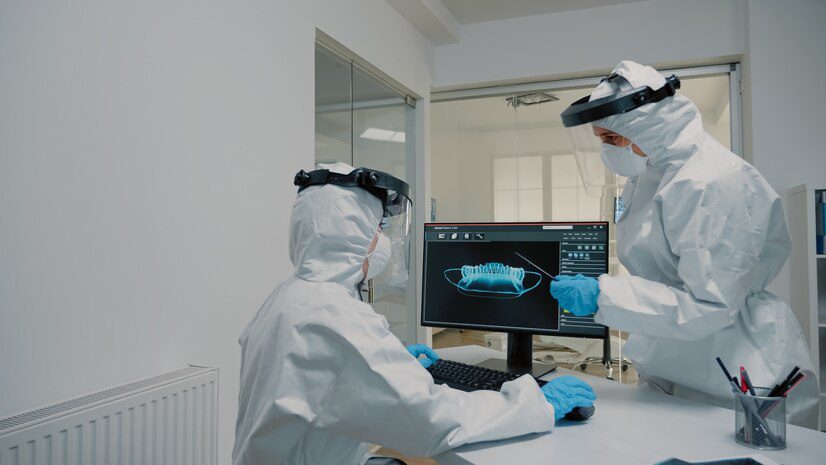Imagine a future where surgeons operate with unparalleled precision, where minimally invasive procedures offer faster recoveries and reduced risks, and where complex surgeries become routine thanks to the steady hand of robotic technology. This future is no longer science fiction; it’s the reality of robotic surgery tech, an exciting advancement revolutionizing the medical landscape.
Gone are the days of bulky, unwieldy machines. Today’s surgical robotic systems are marvels of engineering, featuring miniaturized instruments and high-definition 3D visualization that grant surgeons unprecedented control and accuracy. But what exactly makes robotic surgery so transformative?
Enhanced Precision and Dexterity: Tremors? Human limitations? Not with robots! Robotic arms equipped with tremor-filtering technology offer unwavering precision, allowing surgeons to perform delicate procedures with unmatched accuracy. Imagine navigating intricate anatomy with the steady hand of a robot, minimizing tissue damage, and maximizing surgical success.
Minimally Invasive Procedures: Forget large incisions and extensive scarring. Robotic surgery tech often translates to smaller incisions, leading to faster healing, less blood loss, and reduced pain for patients. This minimally invasive approach not only improves patient comfort but also facilitates quicker recovery times and earlier discharge from the hospital.
Improved Visualization: Imagine operating with a bird’s-eye view of the surgical site. Robotic systems provide magnified, high-definition 3D visualization, allowing surgeons to see even the most minute details with unparalleled clarity. This enhanced visualization facilitates better decision-making and minimizes the risk of complications.
Expanding Surgical Capabilities: Robotic surgery isn’t just for simple procedures. Today, robots are assisting in a wide range of complex surgeries, including neurological, cardiac, urological, and orthopedic interventions. This opens doors for treating previously inoperable conditions and offers new hope for patients with complex medical challenges.
Beyond Physical Advantages: Robotic surgery tech is about empowering surgeons. The system acts as an extension of the surgeon’s skills, providing them with enhanced capabilities and reducing fatigue during lengthy procedures. This translates to improved focus, better decision-making, and ultimately, better patient outcomes.
The Future of Robotic Surgery:
The future of robotic surgery tech is bright. From advancements in artificial intelligence to the development of even more sophisticated robots, the possibilities are endless. This technology holds the potential to:
- Further, personalize surgery: Imagine robots tailoring procedures to individual patient anatomy and needs, leading to even better outcomes.
- Increase accessibility: By making surgery less invasive and more efficient, robotic technology could make complex procedures more accessible to patients in remote areas.
- Reduce healthcare costs: Faster recovery times and less invasive procedures could translate to lower overall healthcare costs.
However, ethical considerations and potential challenges must be addressed:
Robotic surgery is currently expensive, and ensuring equitable access for all patients remains a challenge. Protecting patient data collected during robotic surgery is crucial. As robots become more sophisticated, ensuring surgeons maintain their manual skills and decision-making abilities is essential.
Conclusion
It’s important to remember that robotic surgery tech is not a magic bullet. It’s a tool, and like any tool, its effectiveness depends on the surgeon’s skill and experience. Additionally, the cost of robotic technology can be a barrier to access. However, as technology advances and becomes more cost-effective, robotic surgery is poised to play an even greater role in improving patient care across the globe.
In conclusion, robotic surgery is not just a technological marvel; it’s a game-changer in the field of medicine. By offering enhanced precision, minimally invasive procedures, and improved visualization, robotic surgery is transforming the way we treat patients and offering new hope for improved health outcomes. As this technology continues to evolve, we can expect to see even more innovative applications and advancements, shaping the future of healthcare for years to come.







